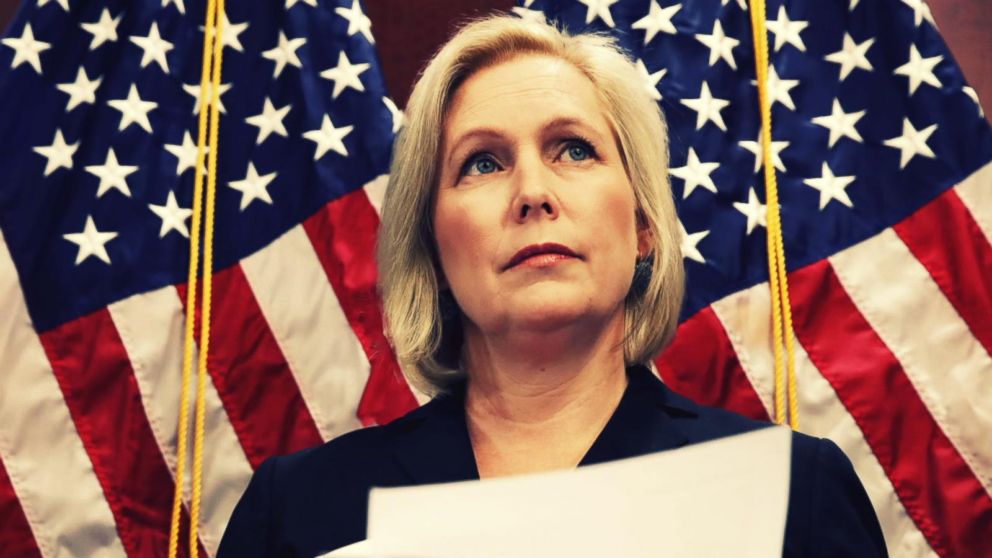Washington, D.C., May 14 – New York Sen. Kirsten Gillibrand is fighting to be the first woman elected President of the United States. But she has pledged to fight for people with disabilities as well. Gillibrand might not have a disability herself, but she has recognized that for a presidential candidate to represent and bring together all Americans, she must include people with disabilities.
People with disabilities comprise 20 percent of our country’s population (25 percent of all adults in America), and more than half of Americans have a loved one with a disability. A recent survey shows that fully three-quarters of likely voters either have a disability themselves or have a family member or a close friend with disabilities.
Gillibrand Commits to Having A Person With a Disability in Her Cabinet
On May 4th, Gillibrand made news with a new commitment. She tweeted:
“Today in Texas, a disability rights activist asked me what I would do to meet standards of inclusion. I’ve committed to having someone with disabilities in my Cabinet, because I want to get this right. Accessibility and inclusion are issues I’ll take on with urgency and care.”
The issue of hiring staff with disabilities on the campaign has been addressed by two other presidential candidates: Beto O’Rourke and Pete Buttigieg. Both of them have promised to hire campaign staff with disabilities, and O’Rourke promised to hire them to positions of leadership on the campaign and, if he wins, in the Oval Office. Buttigieg already has followed through with his promise of hiring a person with a disability on his campaign staff.
Gillibrand did not say whether or not she has anyone with a disability on her campaign staff. But including someone with a disability in her cabinet would be a move worth celebrating.
Gillibrand Responds to Backlash on Opioid Bill

Gillibrand co-sponsored a bill that is attempting to address the opioid epidemic by putting a time limit on prescriptions. Gillibrand originally specified that the limit was meant for patients with acute pain, not chronic pain. This led to backlash from people in the disability community. Matthew Cortland, a chronically ill disability rights lawyer, told the Huffington Post, “The distinction between chronic pain and acute pain isn’t nearly as neat and tidy as the Gillibrand and Gardner press release indicates…The patient community knows that for many living with pain, it can take months or years to get a correct diagnosis of chronic pain.”
Gillibrand responded to the backlash on March 20th through a Medium post, saying that:
“I’m especially paying attention to the concerns that this bill could exacerbate disparities and biases in our health care system — disproportionately faced by women, people of color, LGBTQ people, and people with disabilities. Even through our collaboration with health care experts and advocates on this legislation, this was the first time that my office and I have heard this level of criticism, and many of the concerns raised by patients and disability advocates were issues I had not previously heard. And I hear them now…To the patients and disability advocates who have raised concerns: Thank you for sharing your stories. I am listening. I would be more than happy to meet with you to hear your ideas about how to make this bill better — and to ensure that it does what it was originally intended to do without harming patients.”
Gillibrand Has History of Supporting Disability Rights Legislation
Gillibrand introduced an amendment to the National Defense Authorization Act for Fiscal Year 2012 that required TRICARE to cover treatment for disabilities for military families. On Facebook, Gillibrand wrote, “I’m extremely gratified by the broad bipartisan support the amendment received. This will ensure that the children of so many of our military families, who have disabilities, will receive the treatment they need.”
Gillibrand was an original co-sponsor of The Achieving a Better Life Experience (ABLE) Act. The ABLE act established new tax advantaged savings accounts, called ABLE Accounts, to allow people with disabilities and their families to save for their futures and help cover important expenses like education, housing and wellness, without losing their disability benefits. Any individual who is blind or diagnosed with a disability before the age of 26 and receiving benefits through the Social Security disability program automatically is eligible. ABLE Accounts allow individuals and families to save, tax-free, $14,000 per year, up to $100,000, and to take money out without extra tax penalties.
Gillibrand co-sponsored the Disability Integration Act (DIA). The DIA, a bill introduced by Sen. Chuck Schumer (D-NY) and Rep. Jim Sensenbrenner (R-WI), would require private health insurance to cover long-term care, such as in-home nursing care and personal care attendants for people with disabilities. Many people with disabilities require assistance with activities of daily living such as showering, toileting and dressing. Long-term care coverage permits them to live independently in their own communities.
Gillibrand was a co-sponsor of the The Americans with Disabilities Act Amendments Act (ADAAA) of 2008 when she was in the U.S. House of Representatives. The law was enacted to remedy our courts’ misinterpretation of the ADA’s definition of disability. Courts restricted the definition so much that it became extremely difficult for a person to bring a successful ADA claim. In response, Congress passed the ADAAA to ensure that courts could no longer restrict disability rights in this way.
Mixed Results on Campaign Accessibility
For a presidential campaign to be fully inclusive of people with disabilities, it needs to meet the following requirements: (1) offer captioning with every video it shares or produces, (2) mention people with disabilities and their issues, (3) depict people with visible disabilities in its media, (4) reach out to the disability community, and (5) provide accessible campaign events and website. Gillibrand has met some of these requirements, but there is room for improvement.
Gillibrand’s campaign does not have an official YouTube page and has relied on Facebook and Twitter to share videos. While many of the key campaign messaging videos have accurate open captions, several of the videos Gillibrand has posted on Facebook and Instagram lack captions of any kind. Without captions on all video content, people who are deaf or hard of hearing are being left out of the campaign.
Additionally, infographics on Gillibrand’s Facebook and Instagram profiles do not have descriptive alternative text. Her website does not have alt text on photos. This means that Gillibrand’s message is not accessible to people who use screen readers.
Voter research conducted by RespectAbility shows how disability issues connect to all aspects of American life. It is in the best interest of every presidential candidate and the citizens of this country for candidates to recognize disability issues during their campaigns.
“Candidates for office ignore the disability community at their peril,” said former U.S. Representative and Dallas Mayor Steve Bartlett. Bartlett, who was a primary author of the Americans With Disabilities Act of 1990, is the board chair of RespectAbility. “People with disabilities are politically active swing voters, and candidates should take note of the important issues they care about.”

[…] D.C., June 10 – Sen. Gillibrand previously committed to having a person with a disability in her Cabinet and now goes further in response to a question posed to all of the viable 2020 presidential […]